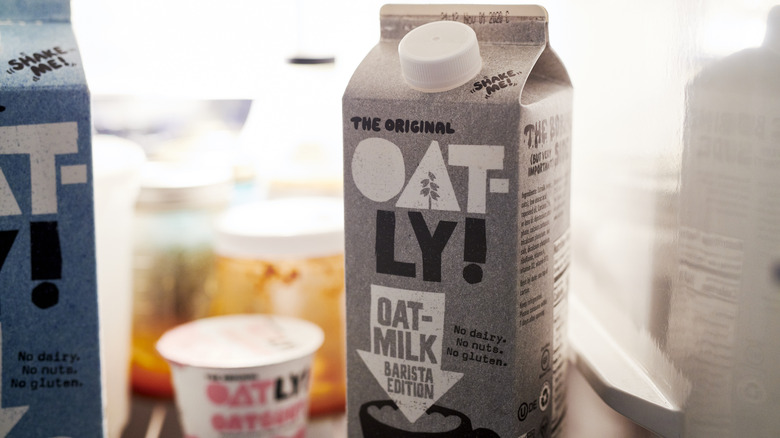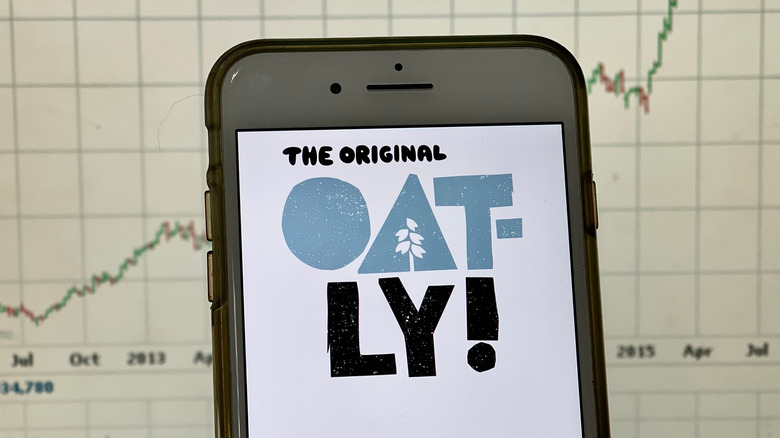Here's Why You May See An Increase In Oatly Product Prices
Grocery bills will grow bigger for some plant-based milk drinkers as Oatly looks to raise the price of their products. As Marketing Dive reports, the company is doing so to offload the increased production costs that come with rising oat prices, which is not so much due to inflation as much as a diminished supply. Food Business News writes that droughts caused 2021 to have the lowest amount of oats grown on record, and also that the demand for oat-based products has increased due to the provided health benefits. "[Production] approaching half of what was needed," Steve Eilertson, president and chairman of Grain Millers, explained. "Much of this deterioration happened late in the growing season and really caught a lot of people by surprise."
A major source of the crop comes to the U.S. from Canada, which has been reported to be the globe's biggest oat exported (Aaron Smith). Again, much of the blame for the decrease in crops is due to extreme weather conditions, which caused significant crop flooding.
Oatly has struggled with supply and demand
It's worth noting that ten months ago, Oatly was suffering from another issue.
In May, Market Realist covered how the brand — like many others in 2021– was experiencing a shortage due to high demand. One reason for this was that the company had seen a growth in grocery store sales of 151% over the course of 2020. It didn't help that Oatly also agreed to be the oat milk supplier for Starbucks. So while this year the issue is supply, last year it was demand.
In December, Supply Chain Dive shared the news that Oatly will construct three new processing plants by 2023 in an attempt to keep up with its sudden chic status. In 2021, they had to contract outside manufacturers just to catch up with the sheer number of people buying the oat milk. However, as The Wall Street Journal points out, the Utah factory Oatly is constructing has been plagued by setbacks, such as oats glomming together in the factory's wastewater tank. Now competitors might use this period of being on the backfoot to claw away at Oatly's dominance.

